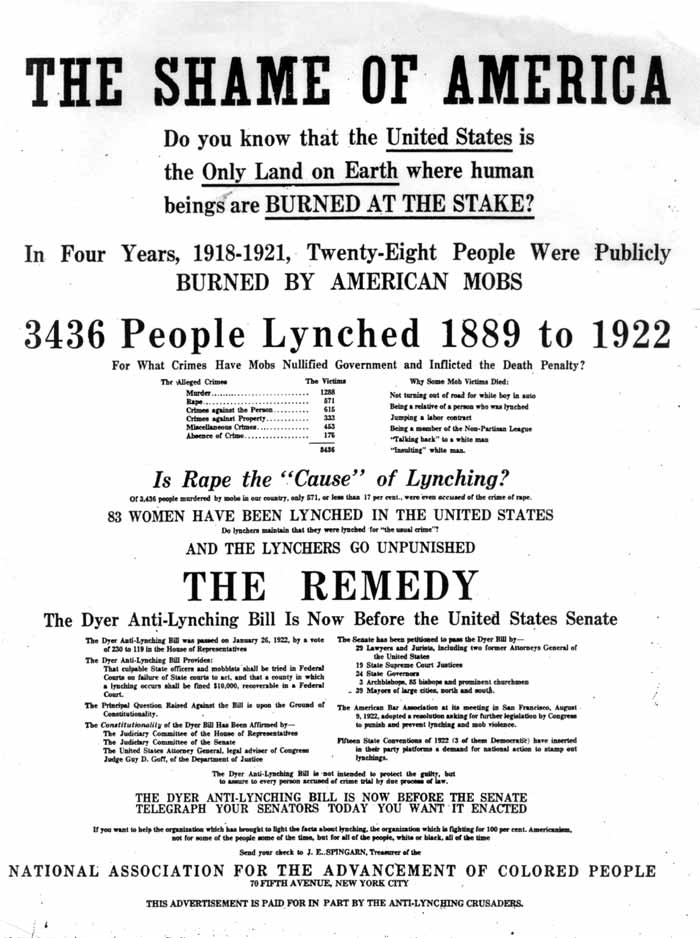talking history | syllabi | students | teachers | puzzle | about us
“The shame of America.”
By 1919, the National Association for the Advancement of Colored People (NAACP), an organization founded in 1909 to advocate for political and social equality for African Americans, had 91,000 thousand members. From its earliest years, the NAACP lobbied Congress to pass a federal law against lynching, the violent and public murder of African Americans still carried out by mobs in many southern states in the early twentieth century (and indeed into the 1950s). During November, 1922, the NAACP ran this full-page advertisement in the New York Times and other newspapers, pressing for passage of the Dyer anti-lynching bill. Passed in the House of Representatives by a two-to-one majority, the anti-lynching bill was subsequently filibustered and defeated in the U.S. Senate. Despite the NAACP’s vigorous efforts through the 1930s and the introduction of several subsequent anti-lynching bills, the U.S. Congress never outlawed lynching.

Source: New York Times, November 23, 1922—American Social History Project.
